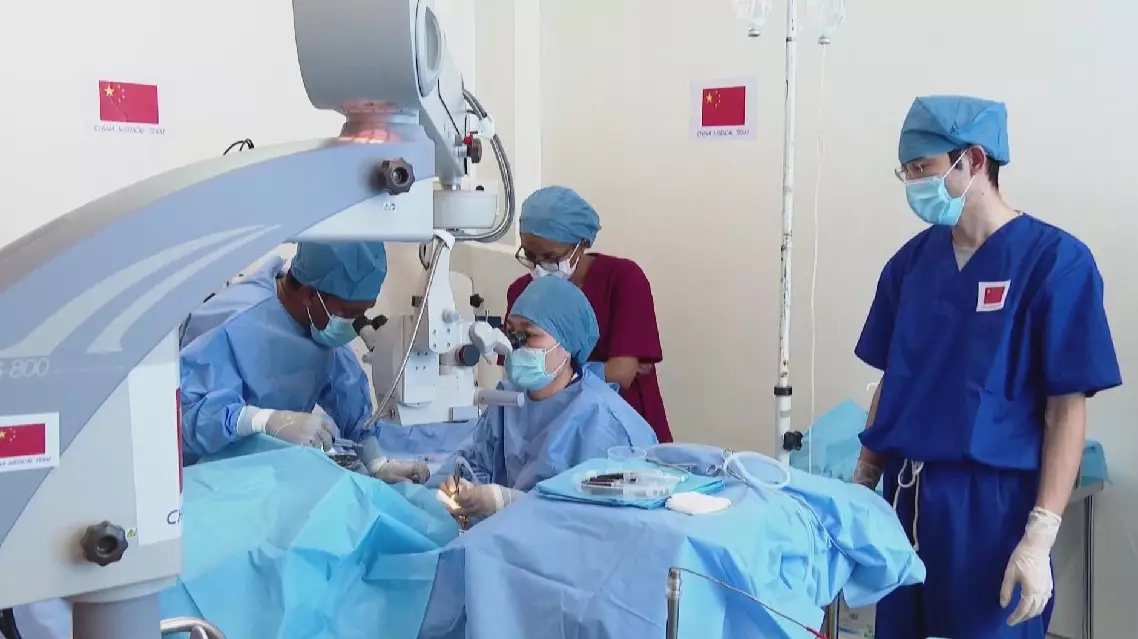The average annual concentration of PM2.5 in Chinese capital Beijing continued to decline in 2024, meeting the country's air quality level 2 standard for the fourth consecutive year, officials said at a press conference on Thursday.
Data shows that the average annual PM2.5 concentration in Beijing's atmospheric environment in 2024 was 30.5 micrograms per cubic meter. Throughout the year, there were 290 days with good-or-above air quality, accounting for nearly 80 percent, an increase of 19 days from the previous year.
"In 2024, PM2.5 decreased by 6.2 percent year on year. The number of 290 days with good-or-above air quality all through the year was the most in history since monitoring records began," said Liu Baoxian, deputy director of the Beijing Municipal Ecology and Environment Bureau.
In 2024, Beijing continued to deepen the "one microgram" initiative, and implemented precise management measures based on the air conditions in different seasons.
The "one microgram" initiative is a long-term initiative for controlling Beijing's air pollution. It uses a combination of targeted measures to achieve its purpose, including technology, enforcement and compliance and management measures. By this initiative, each and every microgram of emission reduction counts.
"We have introduced financial subsidies such as supporting the replacement of old vehicles with new ones, the renewal of scrapped old trucks and large and medium-sized buses that meet the National IV emission standards, and implemented policies such as priority passage for new energy logistics and distribution vehicles. In newly-produced vehicles, the proportion of new energy vehicles has exceeded 50 percent for six consecutive months, and the proportion of new energy machinery has increased by 8.5 percentage points," said Xie Jinkai, director of the atmospheric environment division of the Beijing Municipal Ecology and Environment Bureau.

Annual PM2.5 concentration in Beijing continues to lower in 2024
A Chinese medical team from Tianjin Eye Hospital has officially launched a free cataract surgery campaign at Tirunesh Beijing Hospital in Addis Ababa, the capital of Ethiopia.
Under the name of China-Ethiopia Brightness Journey, the Chinese medical team consisting of 10 senior ophthalmologists and nurses is set to conduct cataract surgery for more than 500 eye patients, with 80 of them having already enjoyed successful operations as of Friday. This round of the China-Ethiopia Brightness Journey will run for more than 20 days.
Amsale Belay is among the beneficiaries of the project. With help from the Chinese medical team, her vision has finally been restored.
"I'm so indebted to the medical team. I have been seeking treatment for more than two and a half years at various hospitals, but I found no solution. I was told there was no hope. But now, I have full hope," she said.
Local medics are also gaining invaluable experience in advanced treatment methods.
"We have been using manual machines for cataract surgeries. We lacked training and skilled personnel to perform surgeries with modern equipment. Now, as you can see, we are gaining high-level technological expertise and experience from the Chinese experts," said Yilikal Berhanu, a senior ophthalmologist.
"So far, we have conducted surgeries for four days. We are also actively training local doctors, hoping that they will be able to perform surgeries by themselves before we leave," said Wei Yinjun, deputy chief physician of the China-Ethiopia Brightness Journey Expert Group.
Speaking at the launch event of the project on Friday, Ethiopian Minister of Health Mekdes Daba said that the project offers far-reaching benefits.
"We will be building skills for healthcare professionals in here because through the procedures, through the one-to-one lessons, one-to-one interactions that we have, our community will have an additional shared experience, hands-on experience. We really, deeply value this project and the support that we are getting," said Daba.
Chinese Ambassador to Ethiopia Chen Hai stressed that the project is a demonstration of the friendship between the two countries.
"As a concrete step toward the goal, the "Bright Journey' project shows vividly our all-weather strategic partnership and traditional friendship," he said.
In Ethiopia, cataracts are the main cause of blindness and low vision. Data from the country's health ministry shows more than five million Ethiopians are affected by various eye disorders.

Chinese medical team provides free cataract surgery in Ethiopia










